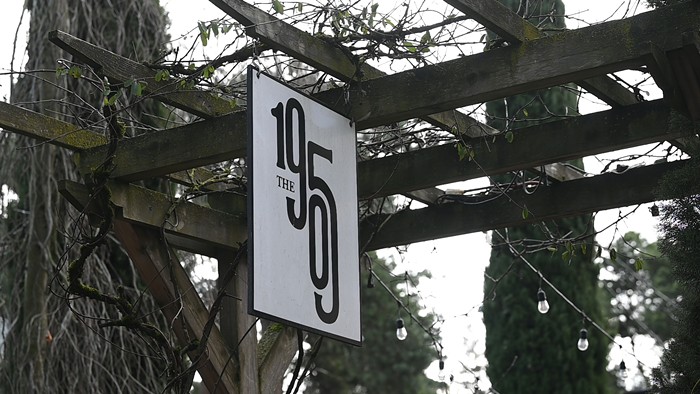BEFORE THEY WROTE a note of music, expectations surrounded Viet Cong. Half of the Canadian four-piece comes from the much-loved Calgary ragged-pop crew Women, which fell apart after an onstage fistfight between brothers Matt and Pat Flegel in 2010 and whose breakup was cemented after the tragic death of guitarist Christopher Reimer in 2012. Their pedigree made Viet Cong an immediate curiosity.
"When Matt and I first got together, we didn't really talk at all about what we wanted to do," says guitarist/synth player Scott "Monty" Munro, who'd worked with Flegel when they both played in Calgary visionary Chad VanGaalen's live band. "I'm sure that nobody wanted to rehash what they'd done in Women."
Following the self-release of a debut cassette in 2013, Viet Cong—rounded out by guitarist Daniel Christiansen and Women's drummer, Mike Wallace—found solace in a barn-turned-studio in bucolic Ontario, where they tracked their full-length self-titled debut. Viet Cong is a richly dynamic record, full of intriguing instrumental squalls and many moods, tempos, and ranges of post-punk experimentalism. The album's overarching element of darkness turns triumphant when Viet Cong allows in frequent slivers of light.
For Munro, though, these studies in tension are hardly premeditated. "I feel like everyone thinks that we have this all-encompassing plan about how we want our band to sound," he says, "when in reality, when the four of us get together and write we just end up with songs that sound that way. We all get bored really easy, so we always try to shift gears, but it's mainly to keep ourselves interested in the song."
These shifts are sharp on songs like "Bunker Buster," where the shadowy melodic vibes of the first three minutes are distilled into an abrasive instrumental over the final two. That disarray segues into the dreamy opening of "Continental Shelf," replete with chanting voices and Joy Division-esque gloom. The LP's closer, "Death," coalesces into a long-form wall of sound after tapping into a minimalist repetition. It's an ominous endpoint to the record, but one that, despite its foreboding title, foreshadows a lively future for the quartet.
"We usually have a reasonable idea of what we're trying to accomplish when we start working on something," says Munro, contradictorily. "It's kind of organized chaos."



















